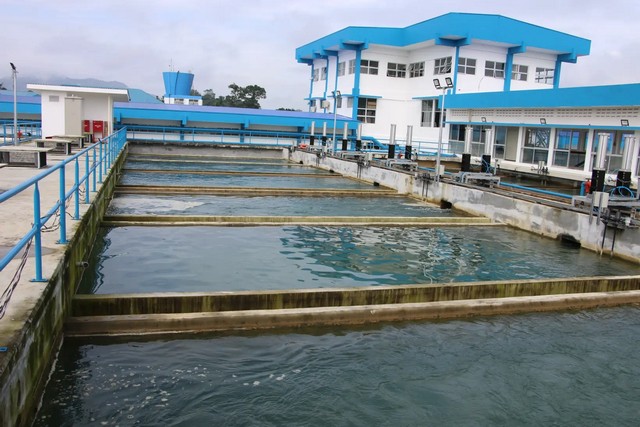In the heart of Sarawak, the Kuching Water Board (KWB) has been a steadfast guardian of the region’s water supply since its inception on January 1, 1959, under the Kuching Water Board Order 1959. Covering Kuching and extending support to Simunjan during annual droughts, KWB is committed to advancing the Sustainable Development Goal (SDG) No.6 – “clean water and sanitation for all.”
Preparing for the Future
Operating under a 20% reserve margin obligation, KWB aligns its operations with the State Ministry’s policies. As of January 2024, KWB’s reserve margin stands at 5%, emphasising the need for strategic planning. The board monitors performance through its balanced SCORE card, ensuring alignment with SDGs, Post-COVID-19 Development Strategy (PCDS) 2030, and State Ministry goals.
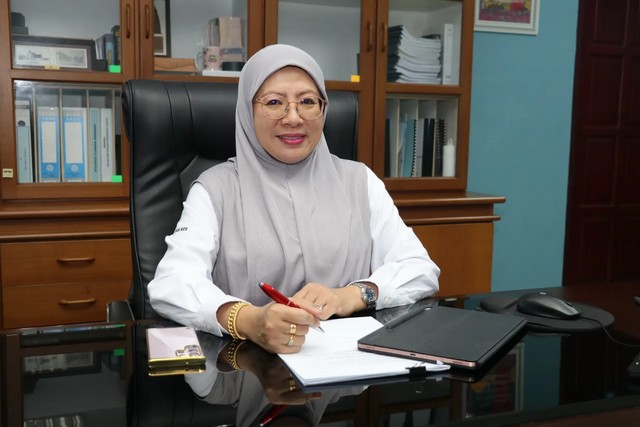
Central to KWB’s transformative journey is a series of ambitious initiatives to address the increasing water demand, expected to rise by 4.5% annually. The ongoing enhancement of Batu Kitang Water Treatment Plant 2, scheduled for completion in Q1 2024, aims to boost treated water production capacity from 96 to 280 MLD. Simultaneously, the Module 7 Upgrade at Batu Kitang Plant 4 in Q2 2024 will add 100 MLD to the capacity. These initiatives set the stage for KWB’s vision of a new Water Treatment Plant in Landeh, with a planned total capacity of 800 MLD, addressing the region’s burgeoning population and industrial development.
The operation of Bengoh Dam since 2016 further serves as a testament to KWB’s foresight, ensuring a sustainable raw water source for treatment to fulfil clean water demands until at least 2030 or 2040. Discussions about future water sources reflect KWB’s imperative to plan for increasing demand and explore innovative solutions to secure the region’s future well-being.
NRW Reduction Through Sustainable Practices
KWB’s commitment to clean water and operational efficiency is evident in its goal to reduce Non-Revenue Water (NRW) to 25%. Proactively addressing ageing infrastructure, the board is engaged in comprehensive rehabilitation efforts, ensuring efficient water supply and distribution. The ongoing development of refurbishment and upgrading of Kuching’s ageing pipelines on top of the Matang Treatment Plant exemplifies KWB’s dedication to maintaining the water supply infrastructure.
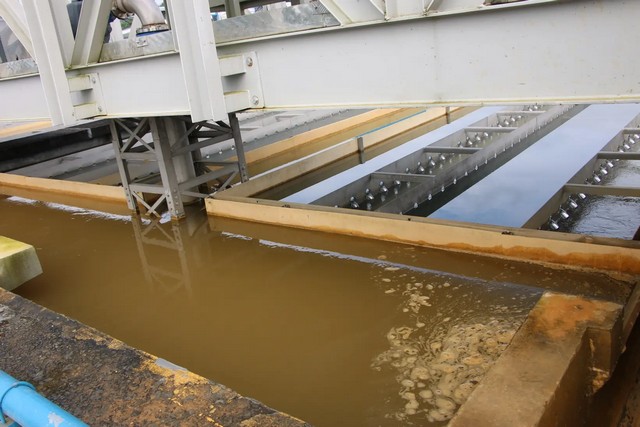
Innovation is at the heart of KWB’s journey. Recently, they have ventured into smart meter implementation for new developments; the plan seeks to install approximately 10,000 smart meters in Kuching, streamlining operations and contributing to conservation efforts through real-time data on water consumption. Additionally, KWB is exploring power reduction and waste management technologies, showcasing a commitment to sustainable practices by embracing cutting-edge technologies.
Collaborations and Digitalisation for Enhanced Efficiency
Discussions about forming a unified water entity by merging JBALB, KWB, Sibu Water Board, and Laku Management are underway and expected to be operational by January 2025. This transformative move aims to streamline operations and enhance water management efficiency, aligning with KWB’s commitment to careful regional planning.
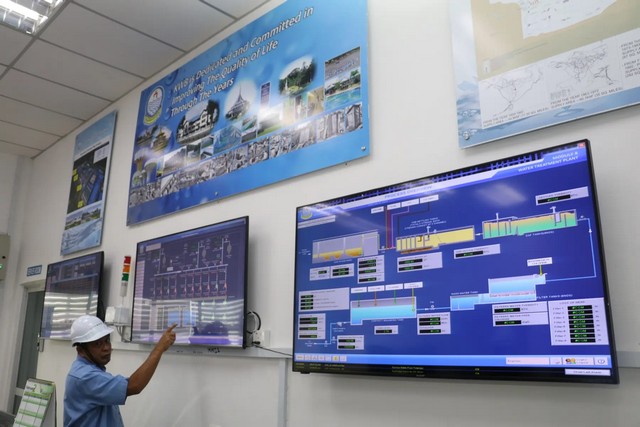
Collaborating with various agencies for operations like raw water monitoring and flood prevention, KWB actively promotes digitalisation. Undergoing plans to merge the iWater app and data-sharing initiatives with JBALB’s existing command centre signal KWB’s commitment to efficiency, offering citizens a one-stop centre for water utility-related services.
Empowering Communities Through Sustainable Practices
As Sarawak steers towards sustainable water accessibility, KWB champions water conservation beyond infrastructure upgrades. Initiatives like the Water Fund Run and Santai Water Walk instil a sense of responsibility for sustainable water usage. As part of the initiative to promote water-conservative lifestyles, recent discussions with other agencies proposed a household water conservation charges scheme to encourage responsible consumption, emphasising individual responsibility and aligning with efforts to ensure equitable water distribution.
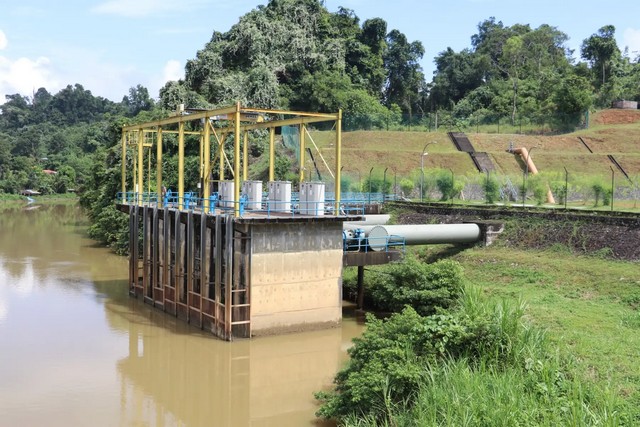
KWB actively promotes water conservation among developers, urging the incorporation of water-saving technologies and prompt repairs for water leakages. These measures ensure conservation becomes intrinsic in daily life and developmental projects.
Balancing Tariffs and Strengthening Regulations for Sustainable Financing
A balanced tariff structure is crucial to sustain finances for clean water production while leaving room for future expansions. Recognising the necessity of community awareness, KWB emphasised the need to adjust the current tariff of 44 cents per 100 litre, unchanged since 1992, not only for revenue but also to encourage responsible water consumption.
KWB also emphasises the importance of strengthening existing regulations to fortify conservation efforts. Revised enforcement measures that match the penalty to the severity of water wastage or theft become crucial to reinforce the message that water conservation is a collective environmental responsibility.
As KWB navigates the intricate flow of clean water initiatives, it remains steadfast in its commitment to ensuring a sustainable water legacy. From upgrades to strategic planning, their efforts represent a harmonious blend of tradition and innovation, shaping a future where water security is synonymous with sustainable development.


